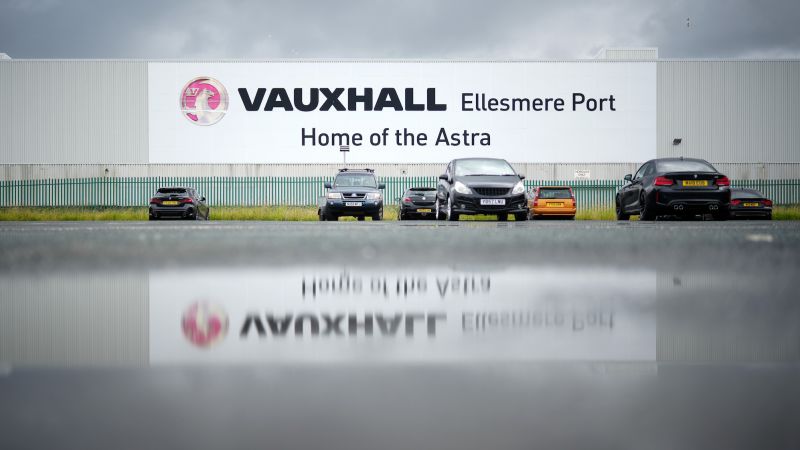British car factories will be forced to close with the loss of thousands of jobs if the government does not renegotiate its Brexit trade deal immediately, automaker Stellantis warned on Wednesday.
The owner of the Vauxhall, Peugeot, Citroen and Fiat brands told the UK parliament that under the current deal it would face tariffs when exporting electric vans to Europe from next year when tougher post-Brexit rules come into force.
The carmaker urged the government to reach an agreement with the European Union about extending the current rules on the sourcing of parts until 2027 instead of the planned 2024 change.
In response, a government spokesperson said the business secretary had raised the issue with the EU.
“If the cost of EV manufacturing in the UK becomes uncompetitive and unsustainable, operations will close,” Stellantis said in a submission to a House of Commons committee examining the prospects for Britain’s electric vehicle industry.
“Manufacturers will not continue to invest and [instead will] relocate manufacturing operations outside of UK, as seen with previously established UK manufacturers such as Ford and Mini.”
Under the trade deal agreed when Britain left the bloc, 45% of the value of an electric vehicle must come from Britain or the EU from 2024 to avoid tariffs.
In order to save its car industry, Britain needs to not only extend the timeframe with the EU but urgently attract battery manufacturers and other auto suppliers to set up here, Andy Palmer, former chief operating officer at Nissan, told BBC radio.
“The cost of failure is very clear. It’s 800,000 jobs in the UK, which is basically those jobs associated with the car industry,” said Palmer, who is also chairman of European battery manufacturer InoBat.
“If you don’t have a battery capability in the UK, then those car manufacturers will move to mainland Europe.”
The British car trade group, the Society of Motor Manufacturers and Traders, said in its submission that the current manufacturing capability in the EU and Britain would not allow the sector to meet the requirements for batteries and battery parts.
The warnings echo wider fears within the industry that the British car sector does not have the capacity or the supply chain to switch to electric vehicles, a huge risk at a time when carmakers globally are selecting sites to build new battery gigafactories.
Britain has drawn electric vehicle investment from Nissan
(NSANF) and Ford
(F), while other big players are still weighing up where to invest.
Stellantis had announced a 100 million pound ($126 million) electric vehicle investment in its Ellesmere Port site in 2021. It said in the submission that when it made that announcement it had believed it would be able to create enough parts in Britain or Europe to meet the rules.
“We are now unable to meet these Rules of Origin,” it said, citing external factors such as the war in Ukraine, supply issues and raw material cost inflation.
Read the full article here
